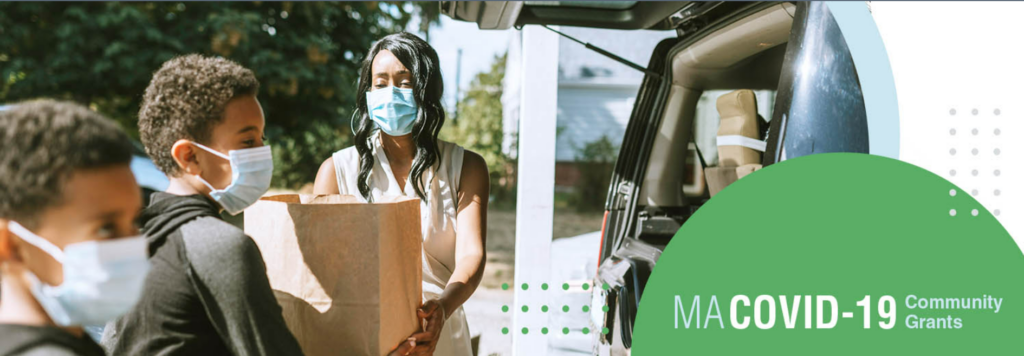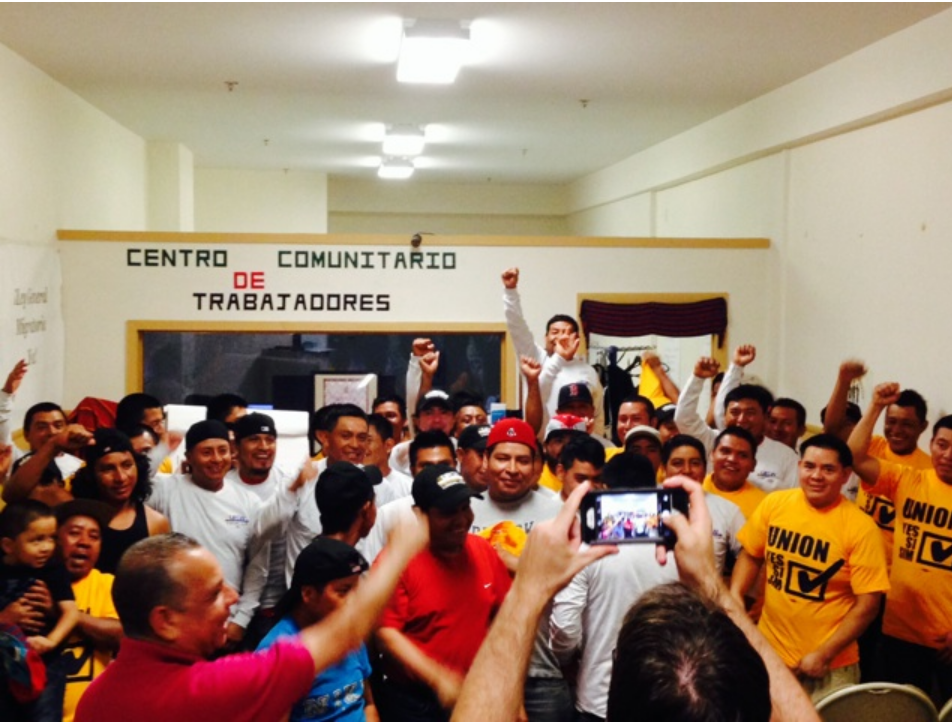Written by Tamaki West (she/her/hers) and Dimitrios Booras (he/him/his)
In honor of National Public Health Week 2022
During National Public Health Week 2022, many of us are reflecting on the ongoing COVID global public health crisis and its impact on communities. It is critical to also acknowledge and reflect on the conditions and circumstances prior to the pandemic that exacerbated its impact on BIPOC communities, LGBQ/T folks, those in the disability community, and others who experience systemic oppression, violence, and the resulting health disparities.
In discussing “Public Health Is Where You Are,” it is necessary to acknowledge the most literal, geographic sense of where we are, and that is on land stolen from Indigenous people. Our work in the Massachusetts COVID-19 Community Grants program builds capacity alongside organizations across the Commonwealth of Massachusetts, land which has been stewarded by Massachusett, Nipmuc, Wampanoag, Naumkeag, Pawtucket, Ponkapoag and other Indigenous peoples (find more information around Massachusetts Indigenous peoples here). The history of genocide, ethnic cleansing, and forced removal echoes in the disparities faced by Indigenous people today and the injustices perpetrated against so many others.
For this reason, along with supporting community-based organizations (CBOs) and faith-based organizations (FBOs), the MA COVID-19 Community Grants program also prioritizes tribal and Indigenous people serving organizations (TIPSOs). The grant program is funded by the Vaccine Equity Initiative and focuses on 20 cities and towns in MA with the greatest COVID-19 case burden, accounting for its repercussions on social determinants of health and the disproportionate impact of COVID-19 on BIPOC communities.

These organizations in our Community Grants program have built a long history of trust, commitment, and support for BIPOC communities since long before the pandemic, and it is their work that we uplift for today’s theme of “Community: Collaboration and Resilience.”
In direct contrast to the ongoing erasure of Indigenous culture and treatment of these communities as relics of the past, the Herring Pond Wampanoag Tribe has been working to amplify the voices of community members concerned by the impacts of COVID and to increase access to services for Indigenous people. Their work continues to strengthen awareness of and response to the needs of Indigenous people today — people who continue to live on and steward the lands on which we live, play, learn, and work.
Blending work to prioritize Indigenous people and immigrants, Centro Comunitario de Trabajadores (CCT) of New Bedford largely works with K’iche’ Mayan immigrants and has worked to support them through the changing world of work during a pandemic. Their education and organizing approaches have protected the health and bodies of immigrants of color, many of whom have been working in-person throughout the pandemic and have risked exposure to COVID from the beginning. Through partnership with area businesses, CCT ensures the immigrant workers know their rights of employment and right to safety during the pandemic, while also sharing up-to-date information regarding vaccines and upcoming clinics with the weekly paychecks received by many in the community. CCT then hosts weekly open meetings where community members can discuss labor rights and vaccination questions/fears in their primary language.

In a world where communities of color are heavily impacted by environmental hazards, and where public policy and infrastructure have pushed these communities to live in areas with heavy pollution and face an increased likelihood to die from environmental causes, TIPSOs engage community members and lift their voices to address environmental conditions that perpetuate disparate health outcomes.
Among the COVID-19 response from Catholic Social Services of Fall River is a priority on people who are facing housing insecurity and homelessness. In preparation for a collaboration with nurses from their local Board of Health, it was key to discuss the nature of trauma and violence experienced and how to respect that vulnerability in the process of distributing vaccines, and teaching around COVID mitigation practices, such as social distancing, for a population that already experienced severe social isolation. Countering loneliness and isolation has proven positive benefits on individual and community health.
The skill of community health workers in navigating cross-sector approaches is critical to building trust in their community and making connections across multiple services and partners. An example of this trust-grounded work’s results can be seen in Black Ministerial Alliance of Greater Boston (BMA). Through their youthwork, BMA built relationships with youth influencers and collaborated on short videos that would reach their social following of 14,000 local followers. These videos reached youth online where they were still holding community during the pandemic and focused on what community can safely look like in-person after receiving COVID vaccinations and a reduction in the COVID case count. The skill of trust-building is a foundational asset that has supported CBOs, FBOs, and TIPSOs in navigating challenges in their communities throughout the pandemic.
For others, community has continued to be found in-person throughout the pandemic. YWCA Southeastern MA has focused on reaching Black, Indigenous, and Latinx communities through direct outreach in bodegas and other locally-owned businesses in which community members gather. In contrast to many of the public forums and information sessions hosted in municipal buildings, CBOs and FBOs recognize that most community conversations happen around the corner and at varying points in a person’s everyday life. These conversations extend into area parks and soccer fields where many families would go to get out of the house as safely as possible during the pandemic. These community gathering spaces highlight the need for continued public focus on creating and maintaining spaces for neighbors to gather in community, as well as the need for going to where they are as opposed to expecting them to come to the spaces we hold.
Each of the highlighted organizations, along with the other 71 CBOs, FBOs, and TIPSOs in the COVID-19 Community Grants program, prioritizes building authentic relationships with community members to have transparent, honest conversations around the severity of COVID and its impact on their lives. In addition to the painful medical complications of losing loved ones, becoming permanently disabled, or severely ill, the organizations in this grant program are supporting their communities with the systemic problems COVID has exacerbated. Racism, particularly for Asian peoples and their experience of hate crimes throughout the pandemic. Homophobia and transphobia for youth who did not feel safe at home and suddenly had nowhere else to go. Housing, job, and food insecurity, which cut across identities and heavily impacted working-class and impoverished families.
Join us this National Public Health Week in thanking these organizations for their incredible work throughout the COVID pandemic and all their work to support community members, whether it be on a Zoom call, Facebook wall, bodega, park, or community center. Thank you!